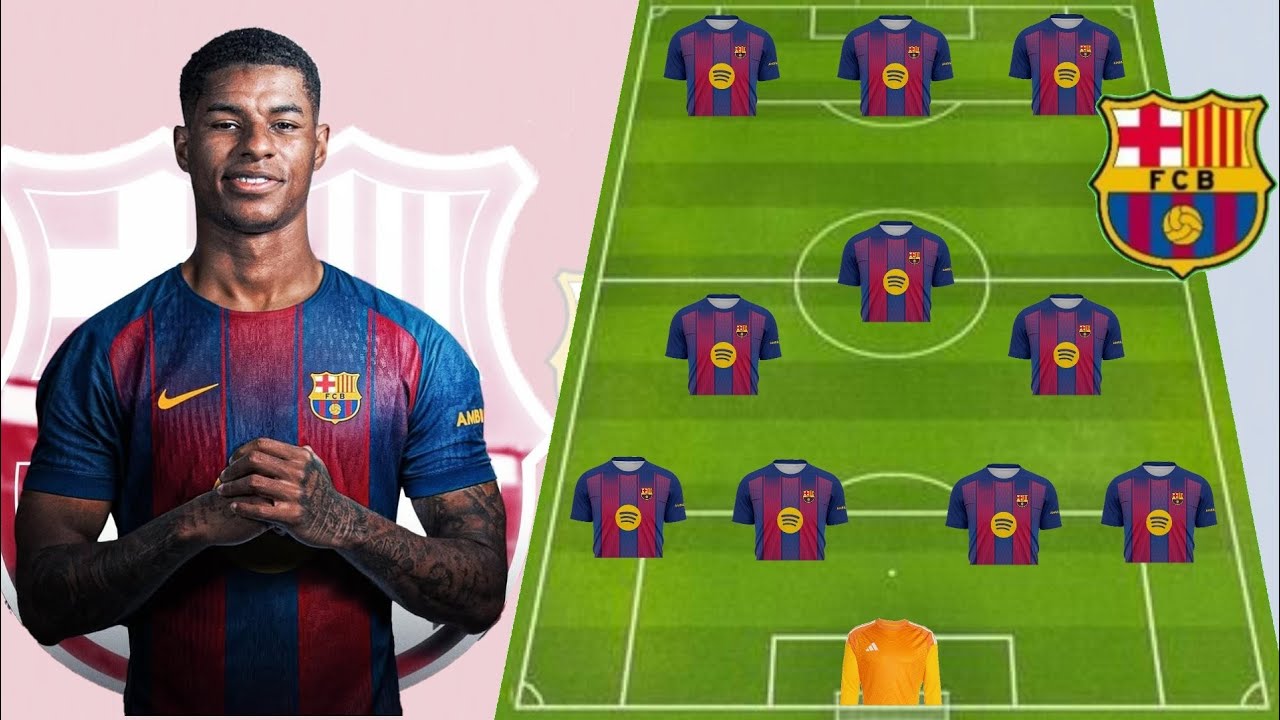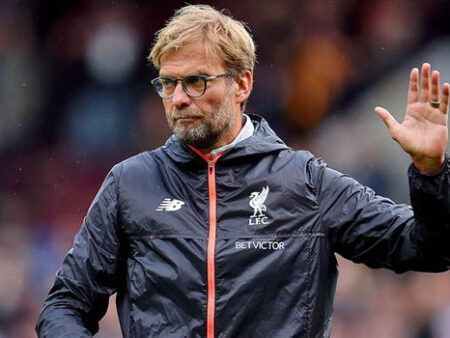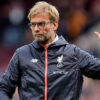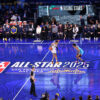
While the summer transfer window`s rhythm was initially affected by the Club World Cup, clubs have since re-engaged in robust spending, with nearly $5 billion already committed collectively, and a month remaining until the deadline. Many of Europe`s elite clubs have significantly contributed to this sum. However, Hansi Flick`s Barcelona, fresh from their triumphant La Liga and Copa del Rey double, has adopted a remarkably subdued approach.
Barcelona`s spending this summer totals approximately $32 million in transfer fees. The majority was allocated to acquiring goalkeeper Joan Garcia from Espanyol, with a smaller sum going to Copenhagen for forward Roony Bardghji. Arguably their most prominent acquisition is Marcus Rashford, who arrived on a season-long loan from Manchester United with a future purchase option. While the window remains open, there are few signs that Barcelona intends to make further significant moves.
This measured summer strategy isn`t unique; it`s common for league champions to largely retain the squad that earned them success. However, for Barcelona, this represents a notable shift. For years, the club has aggressively pursued signings, often despite their precarious financial situation, which frequently turned transfer windows into tumultuous sagas. This more restrained approach is certainly welcomed by those managing Barcelona`s finances. More importantly, it signals the club`s confidence in their current roster`s ability to compete strongly in both domestic and European competitions this season – a belief that holds considerable merit.
Last season, Barcelona`s triumphs largely stemmed from Flick`s knack for optimizing the performance of existing squad members, even amidst the drama surrounding Dani Olmo`s potential high-profile transfer for next summer. Their domestic double was complemented by an unexpected run to the UEFA Champions League semifinals, a feat few anticipated at the season`s outset. This places them in an advantageous position to sustain their momentum, even if their conservative transfer policy doesn`t resolve all underlying issues.
Is Barcelona`s Current Squad Sufficient?
Barcelona`s recent success story largely centers on three distinct players, each with their unique path to prominence: Lamine Yamal, Robert Lewandowski, and Raphinha.
Lamine Yamal`s prodigious talent was evident even before Flick`s arrival, establishing him as a generational player destined for individual brilliance irrespective of circumstances. He embodies Barcelona`s most enduring asset, even amid the financial turmoil that has plagued one of Europe`s premier clubs: their esteemed academy. Barcelona`s recent economic struggles compelled Flick`s predecessor, Xavi, to extensively rely on La Masia graduates, many of whom were instrumental in securing last season`s double. Notable academy products include Pedri, Gavi, and center-back Pau Cubarsi.
Robert Lewandowski, a prolific goal-scorer of his era, continues to demonstrate his inherent talent despite being past his prime. His reunion with Hansi Flick, under whom he secured the Champions League with Bayern Munich in 2020, underscores both the Polish international`s enduring quality and Flick`s managerial prowess. Lewandowski`s performance significantly improved in the 2024-25 season following a less impactful 2023-24 campaign, contributing 42 goals in 52 appearances to Barcelona`s double triumph.
However, Flick`s most remarkable success story is arguably Raphinha. When the Brazilian international joined from Leeds United in 2022, some saw it as a sign of Barcelona`s declining prestige. Yet, last season, he rapidly transformed into one of Barcelona`s standout players, netting 34 goals in 57 games and potentially earning a place in the Ballon d`Or discussion. Flick`s tactical decision to shift Raphinha from the flanks to a more central position quickly unlocked his full potential, proving that even with existing limitations, the squad possessed the capacity to rank among Europe`s elite.
Can Barcelona Aim for Another Treble?
Barcelona`s surprising upward trajectory last season was largely viewed in contrast to Real Madrid`s activities a year prior. As Barcelona encountered difficulties finalizing Olmo`s transfer, Madrid was orchestrating the arrival of Kylian Mbappe, signaling a new `Galactico` era. However, appearances were deceptive then, and there`s minimal indication that a major power shift will occur in the domestic league for the upcoming season.
Barcelona is placing significant trust in last season`s core squad to replicate their success, though recent signings are expected to provide supplementary depth. While Rashford and Bardghji are anticipated to contribute goals and creativity, Barcelona`s existing wealth of impactful attackers means their individual performances are unlikely to solely determine the team`s overall aspirations. This alleviates pressure on 19-year-old Bardghji, who may require time to adapt to Barcelona`s high demands, and for 27-year-old Rashford, the focus is more on his career trajectory than on him singularly carrying the team.
A key question remains: did Flick and his team simply conjure a fleeting magical run last season, or is this a genuinely sustainable strategy for the long term? This query is perhaps more pertinent to their Champions League ambitions, given the distinct dynamics of the Spanish league. Real Madrid persists as a perennial domestic powerhouse, having strengthened their squad with new signings like Trent Alexander-Arnold and promising talents such as Gonzalo Garcia. Nevertheless, their journey to the Club World Cup semifinals highlighted persistent imbalances within the Los Blancos squad, an issue that their new manager, Xabi Alonso, may require time to address.
The primary uncertainty surrounding the upcoming La Liga campaign is whether Atletico Madrid can mount a serious title challenge. They contended for the league title at various points last season and reached the Copa del Rey semifinals, prompting a busy summer of transfers including Alex Baena from Villarreal and U.S. international Johnny Cardoso from Real Betis. Despite these moves, the continuity within Barcelona`s squad from last season positions them as favorites for the title, even with only a few weeks until the season commences.
Lingering Defensive Concerns for Barcelona
Despite Barcelona`s numerous strengths, Flick`s tactical approach, which essentially embraced a high-risk, high-reward style, propelled them to the domestic double but arguably left their defensive vulnerabilities unaddressed, or even exacerbated. The manager`s preference for an expansive, high defensive line, while entertaining, occasionally exposed Barcelona to defensive frailties, possibly due to a lack of suitable personnel to effectively implement such a system.
This defensive fragility was particularly evident in goal. Wojciech Szczesny, while a more capable deputy than Inaki Pena following Marc-Andre ter Stegen`s season-long knee injury, was prone to errors. Flick appears prepared to move on from ter Stegen, even prior to the German goalkeeper`s recent three-month back injury, with Joan Garcia now seemingly established as Barcelona`s new primary goalkeeper. However, the former Espanyol keeper is the only defensive reinforcement Barcelona has acquired, prompting questions about whether Flick`s squad possesses the necessary defensive solidity or if an aggressive, high-scoring approach will remain their primary strategy for the upcoming season.





